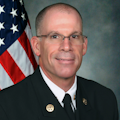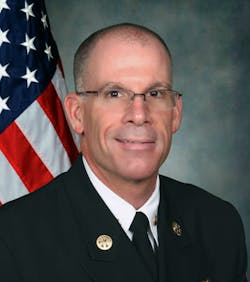Merriam-Webster defines bravery as “the quality or state of having or showing mental or moral strength to face danger, fear or difficulty.” And when you Google the word bravery, in a matter of seconds you will receive nearly 35 million results, including definitions, articles, images and myriad references to the word. Not surprising, some of the images include death-defying, high-risk activities and professions, such as tightrope-walkers, extreme mountain climbers, skydivers, imaginary super heroes and, of course, firefighters.
Over the course of modern history, there have been thousands of men and women who have pulled on a pair of boots, buckled or zipped up a turnout coat, and donned an SCBA, but none of this equipment nor the most technically advanced tools of our trade has created the mental and moral strength that defines the true meaning of bravery.
Bravery is not something you can put on, it’s not something you can carry on your back, and it’s certainly not something you can budget for. It’s about the person and the internal makeup of the individuals who choose to serve in this profession.
The bravery of a firefighter is most often associated with extraordinary lifesaving actions, such rescuing a trapped civilian from the ravages of fire, navigating swiftwater currents to pluck a stranded motorist from a vehicle’s rooftop, or placing oneself in harm’s way to control the bleeding of an innocent civilian during an active shooter event. But the depths of bravery in the fire service are far-reaching, well beyond these examples.
Bravery in the fire service is the individual who stands strong in the face of criticism to look out for the safety of another. It’s the individual who chooses to consciously control the risk rather than blindly accepting the risk.
Bravery is the fire chief who stands before the city council, armed with statistics and empirical data, never forgetting their time served as a firefighter and courageously defending a budget that supports the needs of their department. It’s the fire chief who never sways from the mission of saving lives by prioritizing assignments and allocations that meet the needs rather than wants of the department.
Bravery is the volunteer who, despite their full-time job responsibilities, chooses not to screen or dismiss the call at 3 a.m., when the tones drop for a repeated fire alarm activation or the "frequent flyer" seeking a free ride to the hospital. It’s the individual who selflessly serves, not for what can be gained but rather for what can be given.
Bravery is the firefighter or fire officer who never shies away from being a student of the profession and who never imposes barriers for change based on personal preferences or self-serving interest. It’s the individual who can constructively evaluate raw information but at the same time willfully defend facts.
Bravery is the firefighter who refuses to turn their back, and instead takes action when the rights of a fellow firefighter are being compromised. It’s the individual who refuses to surrender to peer pressure. It’s the person who says it’s OK to ask for help. It’s the firefighter who demands professionalism, not through words but rather through action. It’s the individual who never waivers on the values of duty, honor and trust. It’s the firefighter who objects to those who attempt to control, limit or restrict the messages of others as a matter of self-promotion and personal gain.
Bravery is the seasoned “salt” who says it’s not OK to do what they’ve done in the past simply because of tradition or the mindset of “that’s how it’s always been done.” I am proud of what we’ve accomplished, but we should never let our traditions impede our progress, our safety or the service we provide to the citizens we protect.
Bravery is not a product nor a tangible device that can be passed on from one generation to the next. It's what separates the few from the many, and yet it’s one of the unique ingredients that helps create the bond we call the brotherhood and sisterhood. It's the foundation for which every great department is built, and it’s truly one of our proudest traditions.
About the Author

Timothy E. Sendelbach
Editor-in-Chief
Timothy E. Sendelbach is a 30-year student and educator of the fire and emergency services, and former editor-in-chief for Firehouse. He has served as an assistant fire chief with the North Las Vegas, NV, Fire Department, as the chief of training for Savannah (GA) Fire & Emergency Services and as assistant fire chief for Missouri City, TX, Fire & Rescue Services. He is a credentialed Chief Fire Officer and Chief Training Officer and has earned a master’s degree in leadership from Bellevue University, bachelor’s degrees in fire administration and arson and an associate’s degree in emergency medical care from Eastern Kentucky University.
